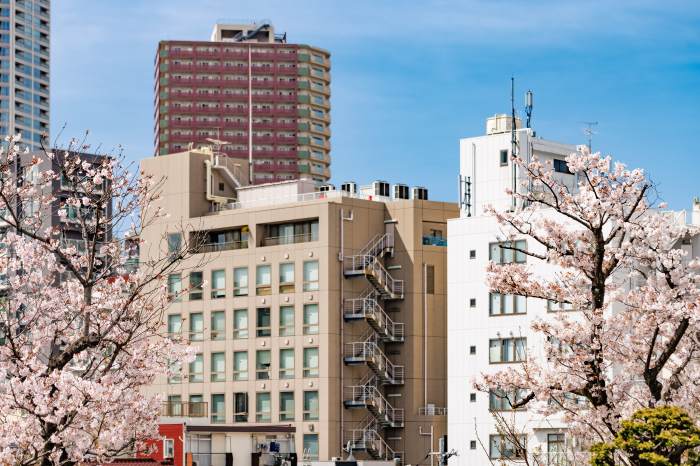Real estate
2024 an intriguing year for Japan: Savills IM
With yield spreads staying relatively high, the benefits of accretive financing and hedging premiums will continue
Mar 29, 2024 (Gmt+09:00)
7
Min read
Most Read
LG Chem to sell water filter business to Glenwood PE for $692 million


Kyobo Life poised to buy Japan’s SBI Group-owned savings bank


KT&G eyes overseas M&A after rejecting activist fund's offer


StockX in merger talks with Naver’s online reseller Kream


Mirae Asset to be named Korea Post’s core real estate fund operator



The Japanese real estate market holds a prominent status in the global investment landscape, buoyed by robust fundamentals that have made it a sought-after destination for investors. Amidst a risk-off shift in the global environment, Japan’s reputation as a reliable and stable investment destination has attracted considerable attention.
Japan finished 2023 as the most active property market in Asia-Pacific, propelled by strong capital inflows from global investors. Notably, according to MSCI Real Capital Analytics (RCA), while inbound interest from North American and European investors has dwindled in most markets, it has remained high in Japan.
That said, transaction volume in Japan started robust in the early part of 2023 but concluded amidst a more subdued tone. The adjustments to the yield curve control (YCC) policy signaled the possibility of a departure from an ultra-accommodative interest rate regime, prompting investors to adopt a more cautious stance.

POLICY NORMALIZATION: HOW NORMAL?
While the recent decision of the Bank of Japan (BOJ) to end its negative interest rate policy and YCC policy is seen by many as a precursor to the end of the current interest rate regime, the matter is more nuanced than it appears. Notably, the fact that Japan’s ultra-accommodative monetary environment has been in play for a long time makes full-fledged policy normalization a delicate task.
The country’s economy faces its own set of challenges, including a slowing economic growth, prompting the BOJ to cautiously weigh the potential economic repercussions of an abrupt monetary tightening. Unlike the US, where mortgage loans are mostly on fixed rates, Japanese mortgages are typically full recourse and over 90% of them are either adjustable rate mortgages (ARMs) or hybrid ARMs.
Therefore, a sharp uptick in interest rates could weigh further on the already-struggling household consumption. On the other hand, corporate profitability has benefited from the weak yen. The central bank will need to closely monitor the impact of an interest hike to prevent the erosion of corporate profits which will lead to a decline in business confidence.
From the view of public finance, the Finance Ministry estimates that every 1-percentage-point rise in interest rates would boost its debt service by 3.7 trillion yen ($29 billion) to 32.5 trillion yen for the 2025/2026 fiscal year. This amounts to 25% of Japan’s annual budget.
Then there is the prospect of the BOJ incurring a further paper loss on its holdings of Japanese government bonds (JGBs), despite having unrealized gains on past purchases of both US dollars and bonds. Throughout 2023, the BOJ continued its substantial purchases of JGBs as part of its YCC policy. By the end of September 2023, the central bank alone held 51.5% of JGBs, with unrealized losses totaling 10.5 trillion yen ($71.2 billion), the largest loss since 2004.
The BOJ's strategy will need to carefully balance the domestic economic recovery, international monetary dynamics, and the inherent risks of a policy shift to make sure that adjustments are sustainable and beneficial to Japan’s overall financial stability.

IT'S ALL A BALANCING ACT
A key catalyst for this widely expected BOJ decision was the enhanced visibility of a sustained demand-driven inflationary environment. Rengo, Japan's largest federation of labor unions, revealed that negotiations on wages had led to a preliminary agreement for a 5.28% increase in March 2024, marking the most significant raise since 1991.
That said, the BOJ has emphasized that its recent policy adjustments do not signify the beginning of an interest rate hike cycle. It explicitly stated its intention to "keep financial conditions accommodative for the foreseeable future."
In the short term, it will be important to monitor if the strong wage growth experienced in large companies spills over to smaller enterprises. Although Japan’s biggest companies agreed to raise wages by 5.28% for 2024, this is a combination of base pay and seniority raises. Only the base pay segment results in increased income for the labour force as a whole, which has so far yielded a weighted average 3.7% increase.
More importantly, Japan’s economy predominantly comprises mid and small-scale firms, which could face challenges in sustaining profitability amidst cost-up factors, including the current wage negotiation. Careful observation will be necessary to assess how these companies can keep pace with the changing financial landscape.
Meanwhile, inflation is on the decline in other developed countries with central banks nearing the end of their tightening cycles.
Although we do not anticipate central banks to cut interest rates significantly in the near term, we expect that the interest rate differential between Japan and other countries to close up over time, but still remain wide. Moderation in the interest rate differential could aid the weak yen, thereby putting some pressure off on Japan’s imported inflation.
Our view is that any further shift in monetary policy will be measured and gradual, steering the economy to a soft landing as inflation eases. In the meantime, the Japan property market will have sufficient time to adjust.

TWO BLOCKS OF OPPORTUNITIES
There are implications for capitalization rates as the BOJ transitions away from an ultra-accommodative monetary policy. From a mathematical point of view, a low starting point in absolute terms means that even a slight uptick in interest rates could potentially have an outsized effect on real estate valuations.
Still, Japan is projected to uphold the lowest interest rates among developed countries in the near term, even if monetary policy pivots away from the current stance. With yield spreads staying relatively high compared to those of major markets, Japan will continue to enjoy the benefits of accretive financing and hedging premiums.
We find Japan multifamily an attractive sector, particularly for investors with a long-time horizon focused on the quality of their return. This sector has exhibited proven resilience in the face of economic downturns, providing downside protection and income security to investors. In fact, while absolute returns in the Japan multifamily sector appear low relative to other sectors, it is crucial to recognize that risk-adjusted returns in the Japan multifamily sector are higher than others.
Going forward, the occupier performance for multifamily is expected to remain strong, backed by favorable trends such as positive internal migration, increase in household numbers, and a rising propensity to rent. We see particular strength in newer and well-located assets, which can better capture rent reversion.
We also recognize the opportunities in the office sector. Occupier sentiments have been patchy since the onset of the pandemic, and while leasing activity has shown signs of a pickup, it is not consistent across the board. Nonetheless, with greater clarity around global demand and domestic sentiments, we anticipate a gradual recovery in 2024.
Backed by strong corporate profitability and improved corporate sentiment, more companies are now re-evaluating their employee headcounts upwards, playing a pivotal role in the recovery. With employees returning to the office, telework ratio has also reached an all-time low since the pandemic.
According to Nomura Institute, Japan’s telework ratio stood at 14.8% as at January 2024, not too far off from the pre-pandemic level of 9%.

In summary, we remain convinced about the mid- to long-term prospects of the Japan real estate market. We continue to see pockets of opportunities and investor should stay invested to benefit from the tailwinds in the Japan real estate markets.
By Hannah Cho, research analyst in Savills IM
Jihyun Kim edited this article.
More to Read
-
 Real estateAustralian real estate debt, capitalizing on growth: Savills IM
Real estateAustralian real estate debt, capitalizing on growth: Savills IMMar 07, 2024 (Gmt+09:00)
6 Min read -
 Private debtWhole loans offer funding solution for stretched borrowers: Savills IM
Private debtWhole loans offer funding solution for stretched borrowers: Savills IMOct 26, 2023 (Gmt+09:00)
6 Min read -
 Private debtPrivate real estate debt shines on banks' financing gaps: Savills
Private debtPrivate real estate debt shines on banks' financing gaps: SavillsJun 22, 2023 (Gmt+09:00)
long read -
 Real estateJapan’s multifamily assets shine amid market volatility: Savills IM
Real estateJapan’s multifamily assets shine amid market volatility: Savills IMAug 08, 2022 (Gmt+09:00)
7 Min read -
 Stake investmentsSamsung Life buys 25% stake in Savills IM for $90 mn
Stake investmentsSamsung Life buys 25% stake in Savills IM for $90 mnMay 27, 2021 (Gmt+09:00)
1 Min read
Comment 0
LOG IN


